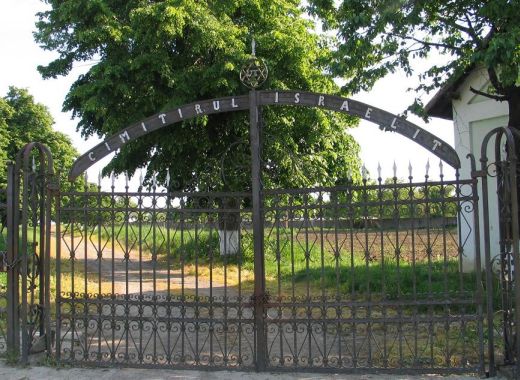
Botosani is a major city in northeast Romania and the capital of Botosani Judet (county). Early Jewish population is known from the 16th/17th centuries. Over the next few hundred years Jews leaving the Russian Empire, Galicia, and Germany headed south toward northern Romania (Moldovia and Bukovina). Jewish population growth was very rapid throughout the 19th century. Botosani Judet and Dorohoi Judet became major Jewish centers along with Jassy. Dorohoi merged with Botosani after WW2.
According to the Jewish Yearbook, [London, 1902-03] the Jewish population (25,000 in 1901/02) in Botosani was 72% - the highest percentage of any large city in the world at that time. Iasi (Jassy) was the 2nd highest at 58%. Elias Schwarzfeld, writer and Romanian Jewish historian from Jassy, wrote two important articles which appeared in the American Jewish Yearbook, 1901-02:
The Jews of Roumania - From the Earliest Times to the Present Day and Situation of the Jews in Roumania - Since the Treaty of Berlin (1878)
Radu B. Rosetti (a.k.a. Verax) wrote his own view of how the Jews came to Romania in Romania and the Jews, 1904. This is a very detailed and interesting history but it is very worthwhile to preface this by reading the Introduction and especially page VII.
A key turning point in Jewish life in Romania occured in 1866 with laws that denied them citizenship, schooling, and economic opportunity. In 1878 the Congress of Berlin attempted to legislate basic rights for religious and other minorities, however it soon became apparent that nothing had changed for Jews in Romania. At the same time a new era of economic and religious opportunity opened across the Atlantic. It was not surprising that from 1890 to 1910 about 1/3 of the Romanian Jewish population emigrated with the majority to the United States [Samuel Joseph, 1914] and [David Vital 1999] However, a large community remained up to the Holocaust and tried to regroup after WW2. In the 1960s/70s new tyrants dealt another blow and a significant majority made the final exodus, mainly to Israel. Botosani, a city with over 100 synagogues in 1900, had 1 remaining active synagogue by 2000 and only a few hundred, mostly elderly, Jews.

Botosani Cemetery - 1908
Botosani Links
Google Translate - Romanian to English translate (a few pages) of text or web pages from/to English or other languages. Not perfect but free and very fast.Pinkas Hakehillot - Botosani
Jewishgen Communities DataBase - Botosani
Romania Wikipedia - Botosani (Romanian)
Wikipedia - Botosani
Wikipedia - Botosani Judet (county)
WorldCat - Jewish Botosani. Find related books in libraries.
Google Books Find books on Jewish Botosani. Some can be read online and downloaded for free. Here are two samples: The Encyclopeadia Britannica, 1910:

Jewishgen Communities DataBase - Botosani
Romania Wikipedia - Botosani (Romanian)
Wikipedia - Botosani
Wikipedia - Botosani Judet (county)
WorldCat - Jewish Botosani. Find related books in libraries.
Google Books Find books on Jewish Botosani. Some can be read online and downloaded for free. Here are two samples: The Encyclopeadia Britannica, 1910:

Train route in 1891 Baedeker Handbook pages 402-403. The Express train from Czernowitz to Bucharest completed the 331 miles in 16 hours in 1891. In 2007

Niciun comentariu:
Trimiteți un comentariu